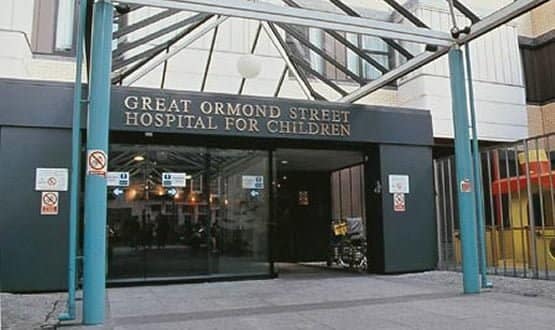Eight-day IT failure at Great Ormond critical care units
- 12 December 2016

Three children’s critical care units had to revert to paper for eight days after an “unexpected total system failure” on their IT.
London’s Great Ormond Street Hospital for Children NHS Foundation Trust revealed during a board meeting on Wednesday that CareVue, the electronic system used to run its three critical care units, stopped working for eight days earlier this year.
The failure, which was deemed a serious incident, was blamed on an outdated IT database that could not support CareVue.
However, the failure was exacerbated by a “lack of defined business continuity plan in the event of a prolonged downtime period”, the paper said.
The software and hardware have since been upgraded but the incident has also sparked a wider review of the trust’s IT infrastructure.
Allan Goldman, the trust’s west division director, said the failure had occurred with both the CareVue software and the underlying hardware.
The trust had been able to print out clinical information from back-up files to operate using paper for eight days and no patients were harmed during the downtime, he said.
The system had failed a few times in the past few years but only for a few hours, not days.
“Even the best systems in the best hospitals go down sometimes.”
CareVue has been in place at the trust for years. In April 2012, the trust reported that the system needed to replaced as a matter of urgency.
“The CareVue software and servers are end of life and constitute a major risk,” a report to the board said at the time.
Goldman said the trust had considered other systems at the time but had decided to upgrade to a newer version of CareVue, which was a big improvement on the previous version.
“It is not in any way a defunct system.”
CareVue is one of many systems that will likely be replaced when Great Ormond picks a news electronic patient record.
When the trust went out to tender in December last year, it was seeking both a new EPR and, in a separate lot, a clinical/ business intelligence and research platform. The ten-year contract for both services was valued at an estimated £46 million to £50 million.
The tender documents said the trust’s staff were frustrated by the current IT systems, which are “complex and often difficult to use” with information not readily transferred between systems and paper still a large part of the process.
The new EPR should cover a PAS, e-prescribing, order communications, clinical decision support and a “child friendly, age-appropriate patient and family portal”, among other things.
The trust had previously indicated that a preferred supplier would be picked by the end of 2016, but that is looking increasingly unlikely.
Papers that went to trust’s board meeting on Wednesday, indicate the EPR implementation project was considered a “high level risk”.
An internal audit of the project presented to the trust’s audit committee in October was described as concerning although “they welcomed the assurance that had been provided by the rapid mitigation work that had taken place”.
The trust remained confident that investment in a new EPR would start in 2017/18, with the system deployed in 2019/20.
Digital Health Intelligence: holds information on the clinical systems installed at trusts across the UK and uses this to calculate a Clinical Digital Maturity Index score. Great Ormond Street Hospital for Children NHS Foundation Trust ranks 48 out of 153, with a score of 80. (requires log-in).




